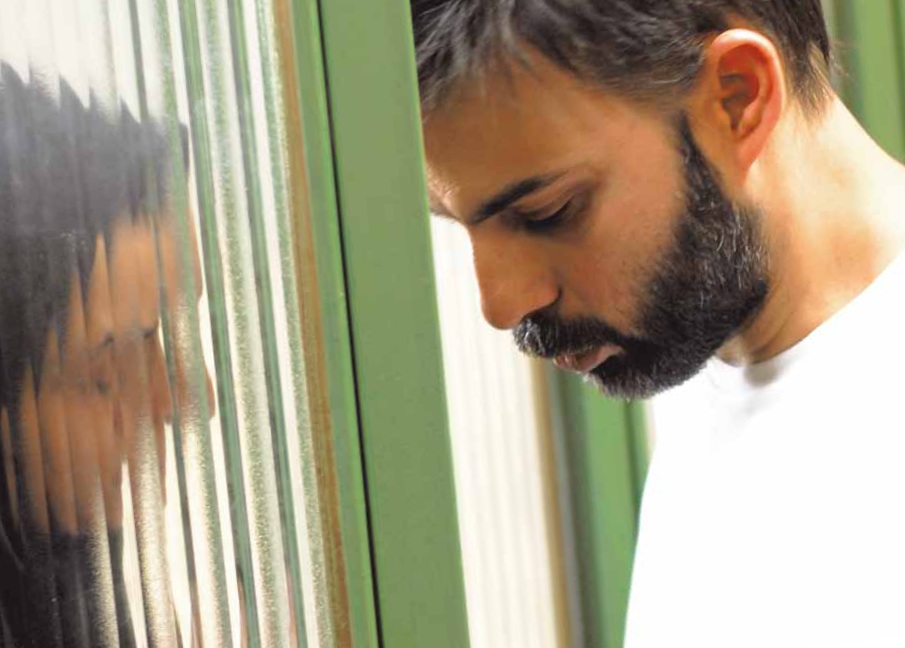

At the heart of A Separation, the psychologically-harrowing yet simple film by Iranian director Asghar Farhadi, is a misunderstanding. A misunderstanding between two families over a hidden truth in the course of a legal battle, a misunderstanding between a daughter who wants her parents to be happy and the same parents being unable to compromise, and a misunderstanding created by cultural tension.
The movie is book-ended with scenes in a courtroom. In the beginning is a plea for divorce by a wife, Simin (Leila Hatami) from her husband, Nader (Peyman Moaddi), in order to take her child, Termeh (Sarina Farhadi), to a better life in America. Nader is adamant in his opposition, citing his father’s crippling Alzheimer’s disease as reason to stay in Tehran, Iran. This is but only the first schism that pervades the film, striking at the foundation of a family already on the verge of division and birthing cracks in the bedrock of their upper middle-class lives.
Nader’s unwillingness to divorce his wife on the grounds of moving abroad pushes Simin to leave. Needing someone to take care of his father during his working hours at a bank, Nader hires Razieh (Sarah Bayet) to care for him. Unbeknownst to Nader, however, is that Razieh is pregnant and working without the permission of her husband who is a debt-laden and unemployed depressive—Hodjat (Shahab Hosseini). First causing trivial irritation and then acting as the catalyst for violent outrage, Razieh and Hodjat eventually find themselves staring down Nader in court, this time for traumatic events this critic will not reveal.
Farhadi captures a precarious balance between gender, religion, social mores and generational angst in his portrayals of the two families each pining for what they see as a prolonged struggle for justice. And whether it’s hazy recollections of details concerning a lawsuit or the subtle pleas for placid reconciliation from a pensive Termeh, always drawing a line in the sand is an unfettered battle of pride, fear or confusion. It’s that confusion, too, that Farhadi craves in his films—the kind that constantly begs the viewer to stop and really question whether our characters are acting justly or if there loyalty should trump their morality. Present is not a good-versus-evil scenario, but different versions of good whom the viewer doesn’t know whose victory to wish for.
The camera acts as a patient observer, granting us permission into the lives and homes of ordinarily extraordinary characters. It waits around corners and sits at kitchen tables revealing all the nuances of arguing parents and the hushed cries of sons and daughters waiting for judgments and decisions.
“I don’t think it’s important for the audience to know my intention. I’d rather they left the cinema with questions. I believe that the world today needs more questions than answers. Answers prevent you from questioning, from thinking,” said Farhadi.
One of those notorious questions which Farhadi highlights (rather masterfully) is that of social context. Iranian society calls for religiosity and adherence to a certain degree of orthodoxy. When Razieh must wash and change Nader’s father after having wet himself, she frantically calls upon a third party to question whether it is a sin or not to wash a man although it is her hired duty.
The extant realism of the characters in A Separation is occasionally marred by a sinking feeling that we’ve seen these characters before, as if they’ve been plucked from a predetermined set of believable mumblers. But Farhadi strove to bring a dynamic perspective to the female leads in his film.
“Western audiences have a very fragmented image of Iranian women whom they see as passive, home-bound and far from any kind of social activity,” said Farhadi. “And perhaps some women do live like this, but for the most part women are highly present and active in society, and in a much more forthright manner than men, despite the restrictions they are subjected to. Both kinds of women are present in the film, without either being condemned or proclaimed a heroine.”
It is an unexpected and refreshing tale to be included at the tail-end of 2011, and its nomination for Best Foreign Language Film Oscar is a nod to its quiet brilliance. 9/10
A Separation is rated PG-13.
Kyle Dunn / Editor in Chief
